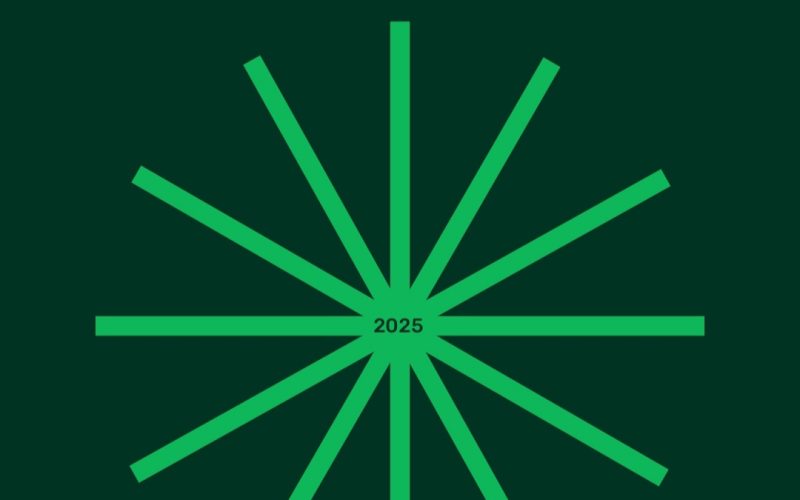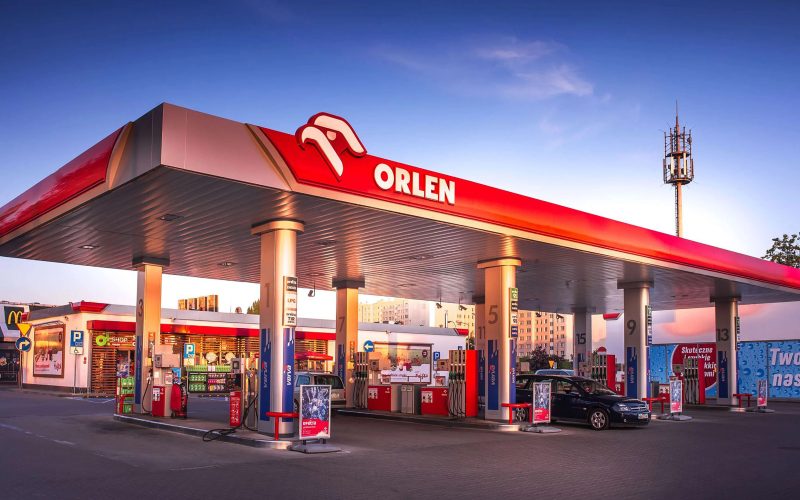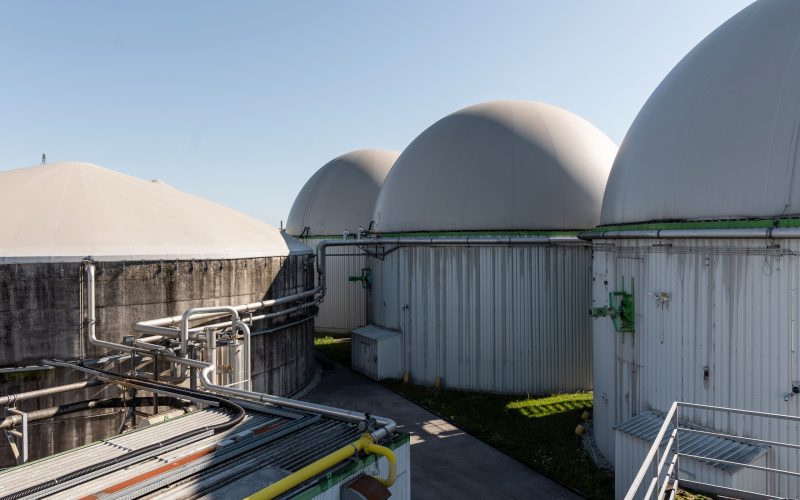Development of the biogas and biomethane market in Ukraine: barriers, opportunities, prospects — panel discussion
On August 29, an online panel discussion “Biogas and biomethane: new opportunities for Ukraine’s energy independence” took place.
At this event, representatives of the authorities and experts discussed the role of biogas and biomethane in Ukraine’s economy and energy sector. The main focus was on prospects for the development of this sector and barriers, particularly for potential investors.
Video of the event (in Ukrainian)
Speakers’ key points
“The renewable gas market creation is important for both Ukraine and the European Union. The Ministry of Energy of Ukraine continues to work on the development of biogas and biomethane, striving for cooperation with partners“, said Ihor Kovalov, Director-General of the Directorate of Resource Efficient Transformations at the Ministry of Energy of Ukraine.
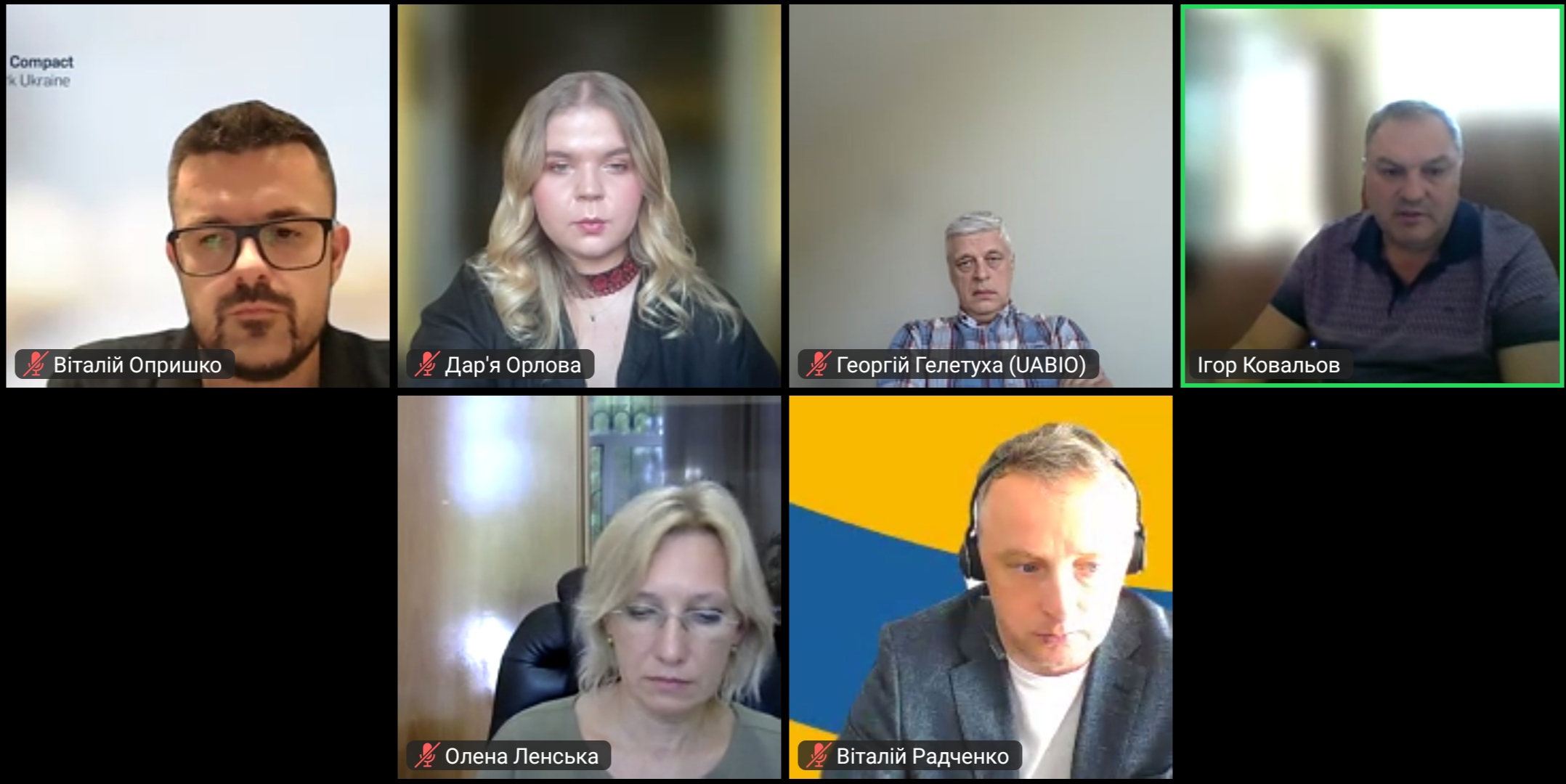
According to Ihor Kovalov, the Ministry of Energy is actively working to improve the positions of the biomethane and biogas markets. The adopted National Plans are expected to make a significant contribution to this:
- National Energy and Climate Action Plan until 2030 (promotes the production of biomethane, 100 million cubic meters per year).
- National Renewable Energy Action Plan until 2030 (provides the implementation of renewable gases in Ukraine, with a total amount of biogas and biomethane up to 22 million cubic meters per year).
The director emphasized that joint initiatives with the EU regarding the export of biomethane are currently being implemented. Also the roadmap is being currently developed in collaboration with the European Commission. Additionally, the Ministry of Energy is taking into account feedbacks received from various organizations and planing joint meetings. Ministry works on creating a fundamental legal framework for the export of biomethane to the EU.
“We need to have an accurate request to the European Union now, clarify whether the introduction of a Ukrainian biomethane register will create an additional barrier for the export”, said Olena Lenska, Director of the Department of Renewable Energy at the State Agency on Energy Efficiency and Energy Saving of Ukraine.
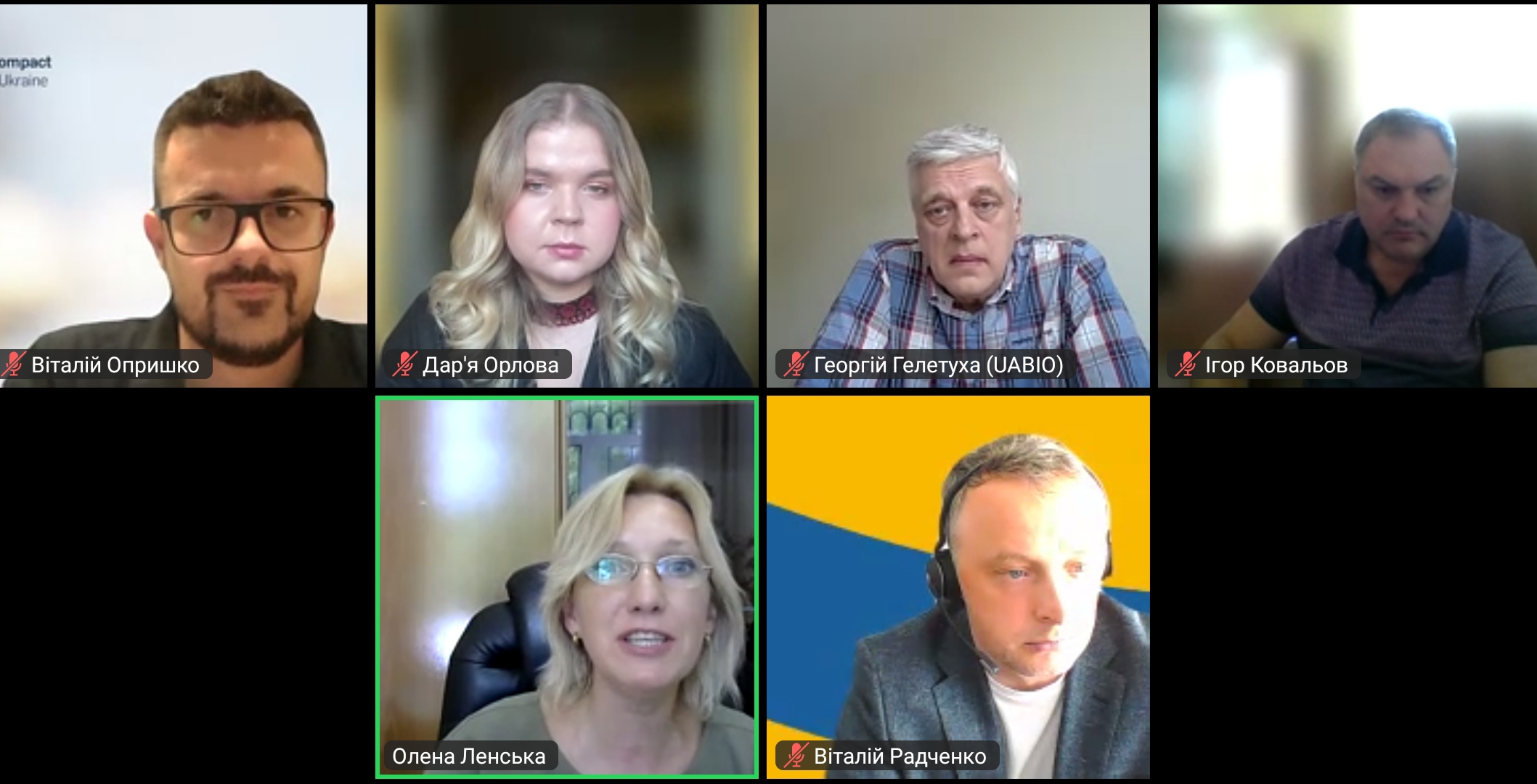
She noted that in Europe, additional value is already given to renewable gases, if the requirements for guarantees of origin and sustainability criteria are met.
Olena Lenska emphasized that EU Directive 2023/2413 (RED III) will probably be revised, and we will see these changes in a year. It may influence the Ukrainian register being developed by the State Agency on Energy Efficiency and Energy Saving of Ukraine. In her opinion it is inappropriate to implement a biomethane registry right now, as a significant amount of revisions will be needed.
“On August 22, we got investors together to find out their opinion. They admitted that most producers are currently considering the future export of UDB based on proof of sustainability (POS) criteria. We are in touch with the producers, the European Commission, and the Ministry of Energy. So, we will continue to move forward”, stated Olena Lenska.
“It seems there is no single state authority that will push the biomethane sector forward. It’s necessary to designate a ministry responsible for implementing policies for the development of the biomethane sector and for the overall coordination of ministries and agencies on this issue”, said Georgii Geletukha, UABIO Head of the Board and Board Member of the Bioenergy Europe.
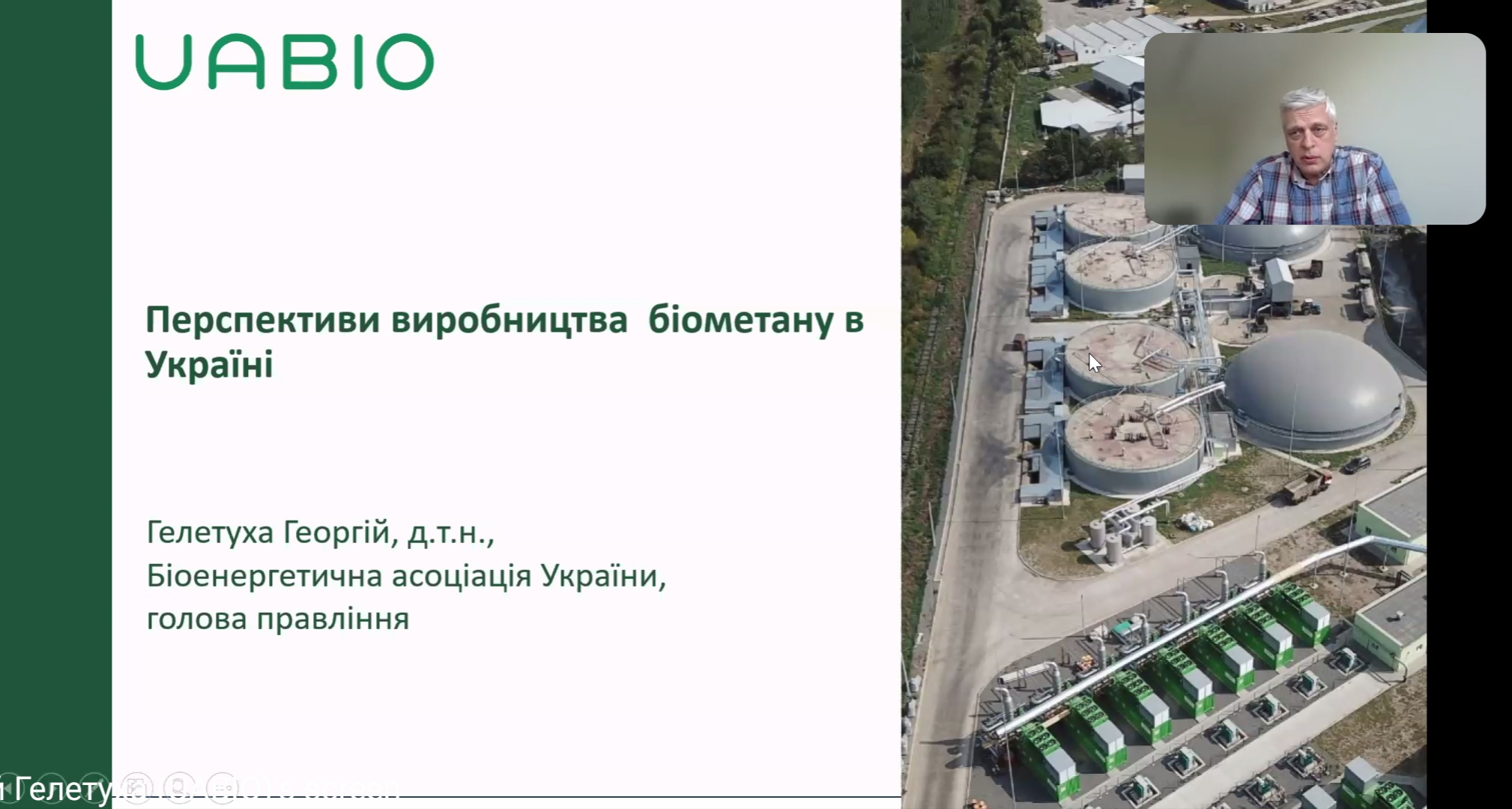
The expert noted that the biomethane production market in Europe is experiencing significant global growth. He provided statistics and compared development trends with the goals for 2030, as well as discussed the state of biogas/biomethane sector in Ukraine. Thereby, 83 biogas plants with an installed capacity of 140 MW are operating in Ukraine. And only two biomethane plants with a total capacity of 6 million cubic meters per year are ready for operation. However, the expert noted that in the nearest future, seven Ukrainian biomethane facilities with a total capacity of 111 million cubic meters per year are planned to be launched.
UABIO Head of the Board emphasized that the feedstock base for the biomethane and biogas production is extensive. Among the main sources are: industrial livestock, industrial cropping, food/animal feeds/beverages production, as well as sequential cropping. Also, he emphasized that the profitability of biomethane projects with an internal rate of return is up to 28.4% for plants connected to the gas distribution network (GDN) and 25.7% — for the gas transmission system (GTS).
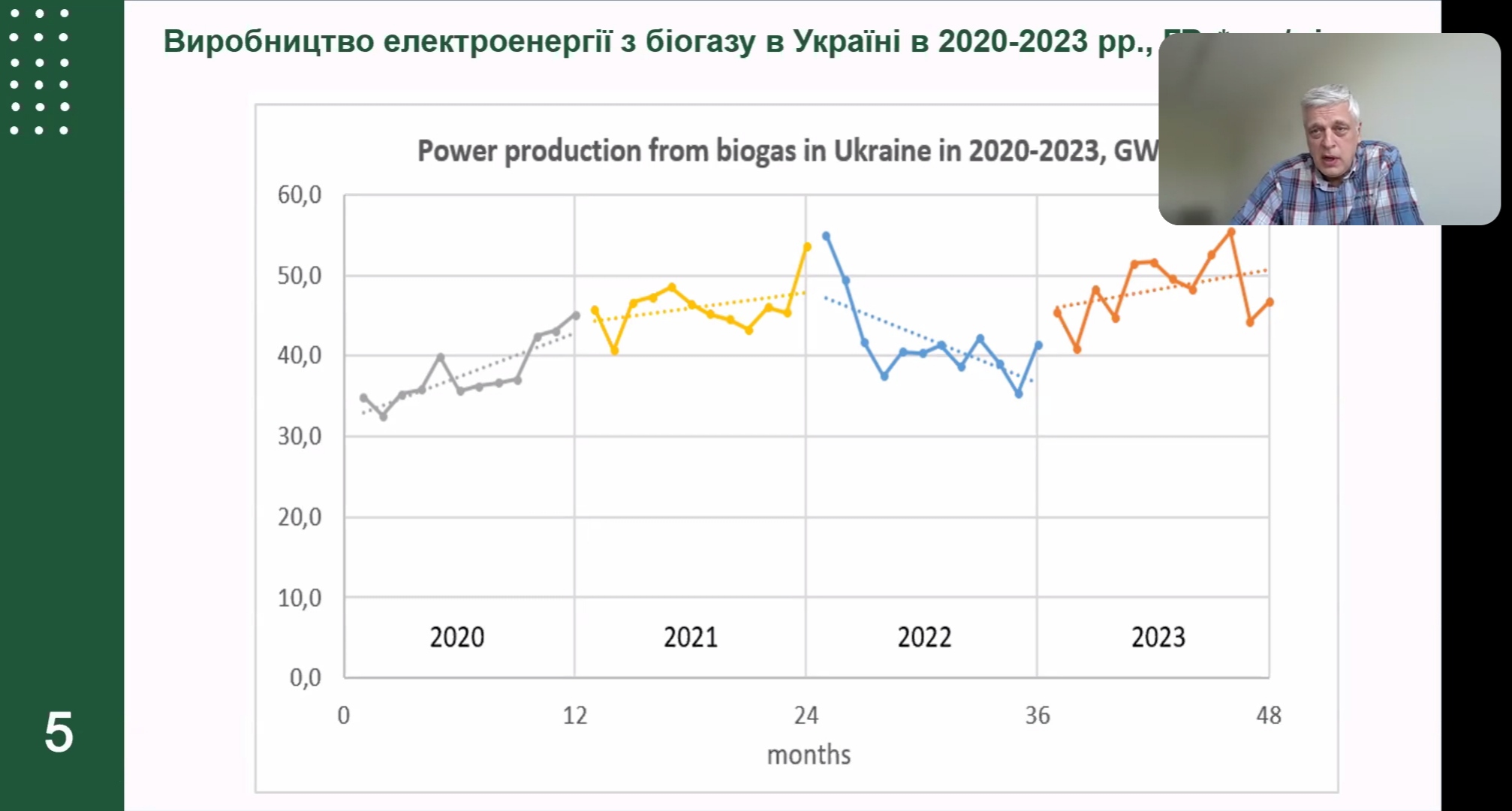
“Ukraine’s basic legislation in the field of biomethane is fully prepared, with the final element being the Law of Ukraine on Amendments to the Customs Code. Now it allows the export of biomethane, while the export of natural gas is prohibited during the period of war”, noted Georgii Geletukha.
Although, there are still two barriers:
- The issue of connecting biomethane plants to gas distribution networks and operational activities;
- The issue of sustainable development of the biomethane sector in Ukraine.
We recommend to get acquainted with the presentation of Georgii Geletukha where you can find more details on these issues and comprehensive data.
“Today we outlined the problem of long terms for obtaining technical conditions and their approval by the Operator of Gas distribution networks (GDN) of Ukraine. National Commission is always ready to collaborate and work towards their resolution. On the other hand, there are nuances: physico-chemical indicators; GDN are responsible for gas quality, so they set such requirements. By the way, we support changes to the current legislation and ready to receive proposals regarding a standard contract for connection and transportation, agreed upon between biomethane producers and network operators”, — representatives of the National Commission for State Regulation of Energy and Public Utilities.
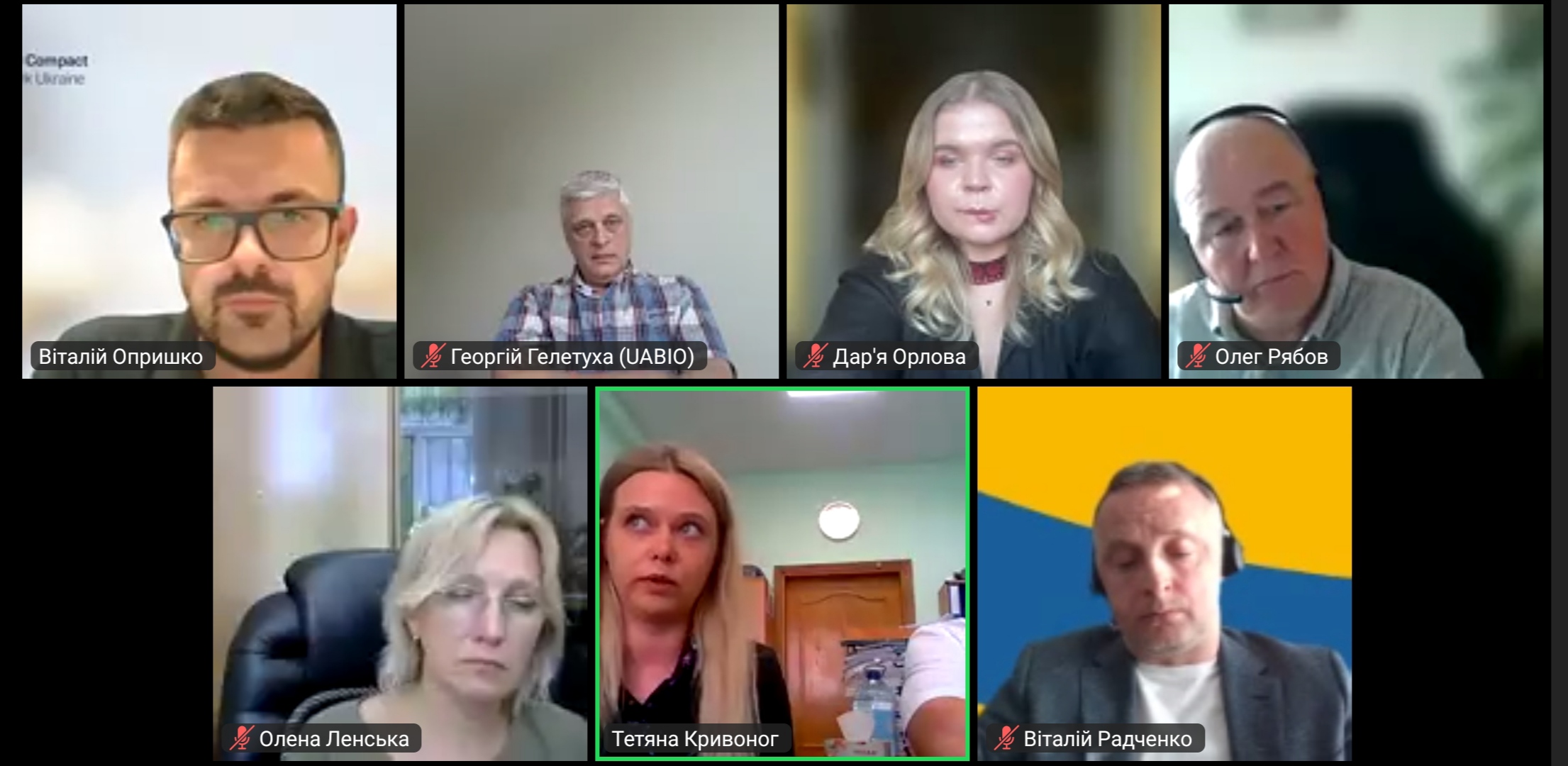
“We are not very welcomed in the EU with our biomethane, as investors will need to insure not only against military risks but also against political ones”, said Oleh Riabov, Deputy Director-General of the Gals Agro company.
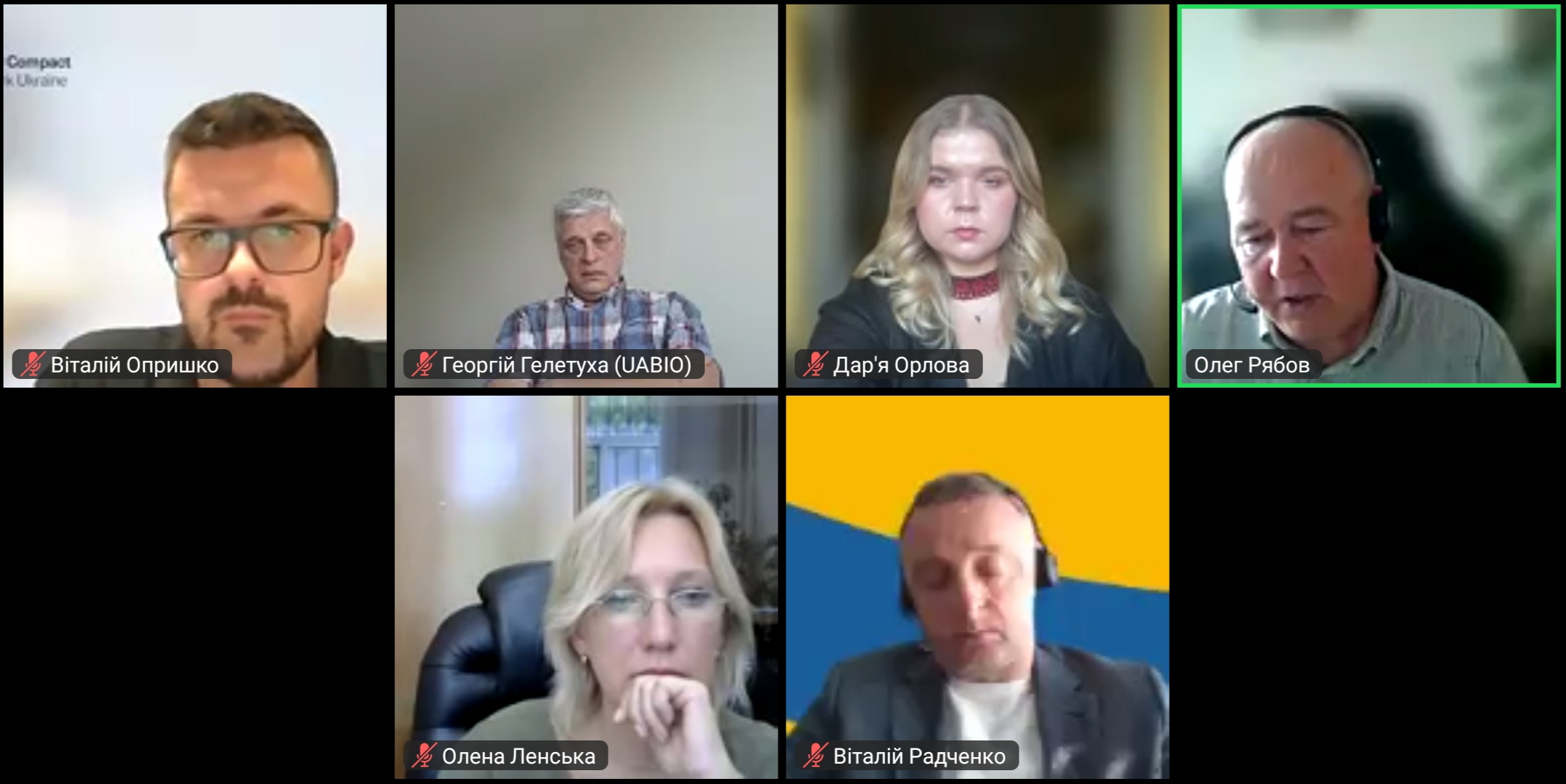
He is convinced that this sector will be the future market for small producers and raw material owners. According to him, current situation is not so optimistic from the perspective of potential investors:
- Investors are interested in the opportunity to invest and generate profits, rather than waiting for the adoption of legislative proposals.
- Biogas or biomethane facilities need to be located first of all, where there are no raw material resources for biomethane production, and good connection to the GTS/GDN — second factor.
The expert emphasized that the problem with the biogas sector is being laid at the intersection of the responsibilities of several institutions. At the Cabinet of Ministers of Ukraine, it is necessary to create one authority that will be responsible for all related issues.
“We have many issues that could favor collaboration with our neighbors rather than with us. As a result, we are facing challenges with investors. For example, Shell, which started working with biomethane, chose to go to Poland rather than Ukraine”, emphasized Oleh Riabov.
He added that “we need to make conditions much better than those in Poland or Slovakia. Consequently, I do not share the optimism reflected in the tables regarding the development of Ukrainian biomethane. If nothing changes, there will be no new projects in Ukraine”.
“Overall, Eastern Europe is a desert when it comes to biomethane plants”, said Vitalii Radchenko, managing partner of the international firm CMS in Ukraine.
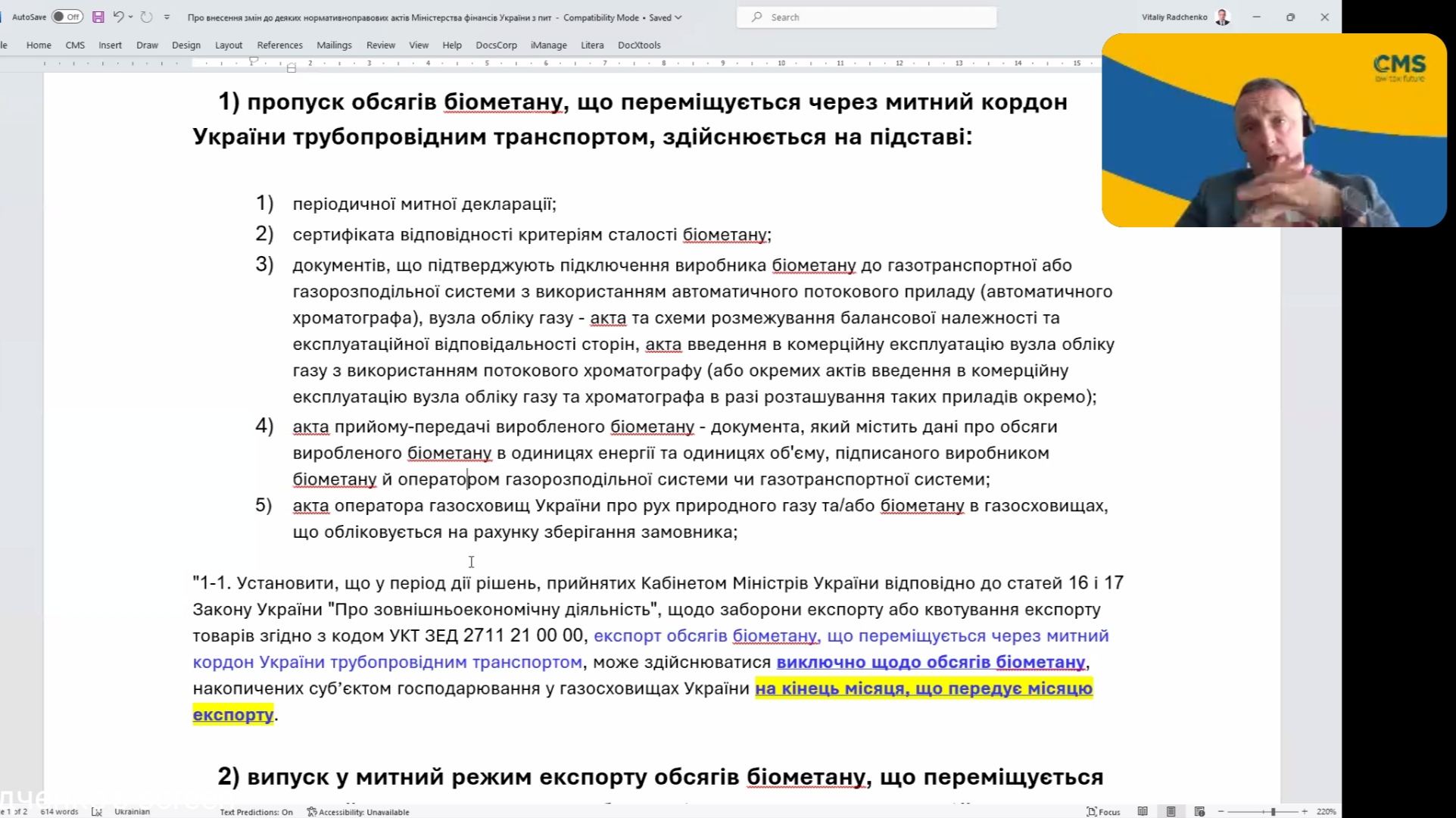
He countered to Oleh Riabov, emphasizing that according to the Biomethane Map, Ukraine has 5 plants, while Poland has none. Though, he said that Western European countries are far ahead in these indicators, especially France and Denmark.
Vitalii Radchenko also commented on the changes regarding the export of biomethane across Ukraine’s customs border. According to him, gas transmission system operators and storage operators use different units of measurement, which can complicate coordination processes. He stressed the importance of selecting a unified system for measuring biomethane volumes.
“Of course, things are not completely perfect, mainly due to the Verkhovna Rada Committee. However, we have what we have, and hope that the first test transactions will take place in September”, noted Vitalii Radchenko.
At the end of the discussion, Olena Lenska summarized: “So far, only 7 biomethane plants are ready for launch, and it is uncertain whether we will be able to cary out our National Plan. On the other hand, when the State Agency on Energy Efficiency and Energy Saving started launching the program for solar panel networks for households, there were only 21; then it grow to hundreds and thousands. As soon as it became clear that the sun is a very good and efficient source of energy, the number of panels began to increase quarterly by 4-5-10 times. Therefore, 26% of solar energy was produced by household installations. That is why there is potential for biomethane; if everything falls into place, there will be progress”.
The event was arranged by the UN Global Compact Ukraine in collaboration with ExPro Consulting and the Bioenergy Association of Ukraine as part of the Ukraine Energy Initiative. Vitalii Opryshko and Daria Orlova moderated the discussion.
